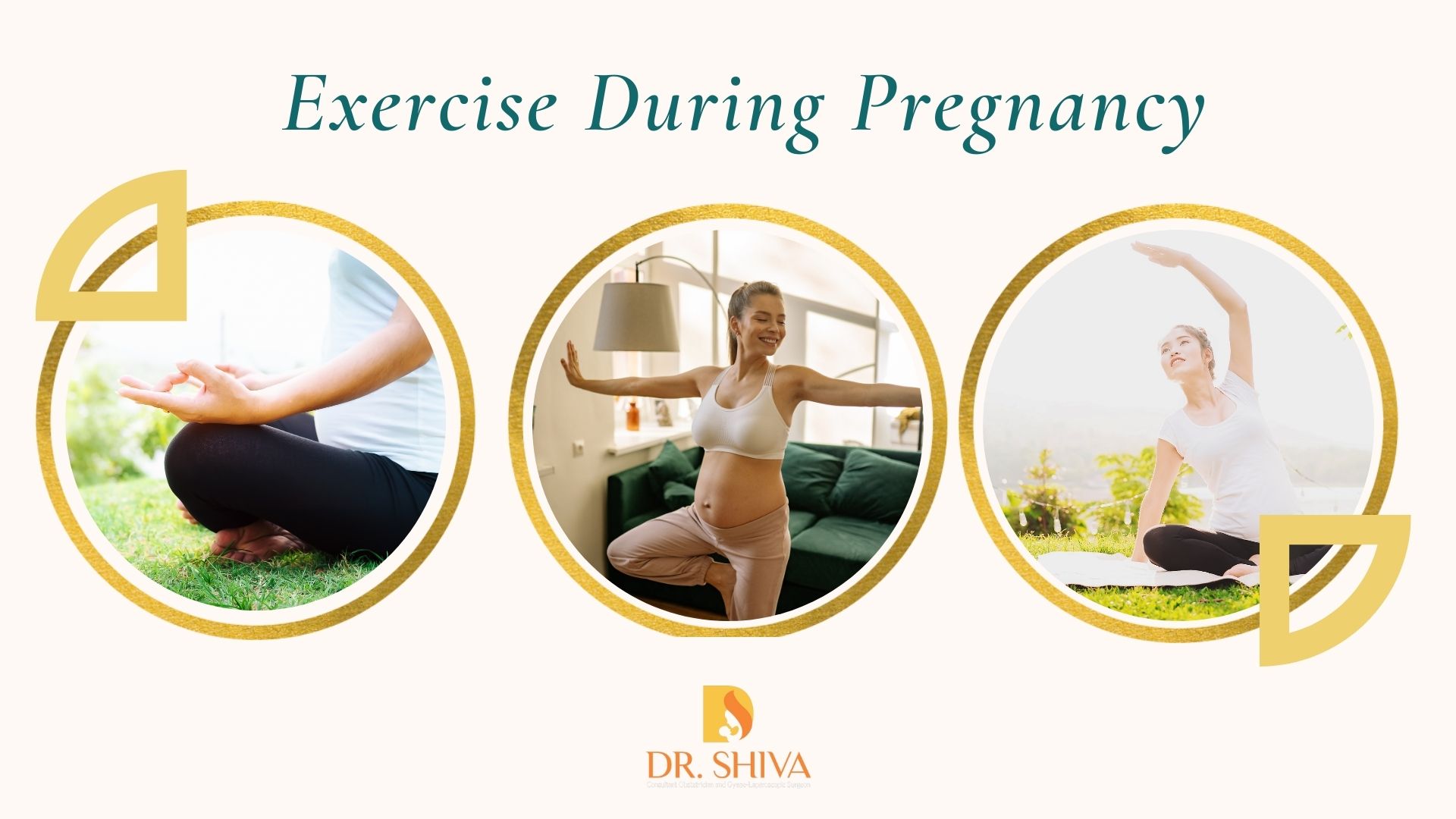
Exercise during pregnancy helps to relieve stress and build the stamina required for labor and delivery. It can also help reduce discomforts like fatigue, back pain, etc. You may continue with your exercise as long as you are comfortable and under the approval of the doctor. If you were not exercising before pregnancy do not start suddenly with a strenuous activity instead start with walking or swimming. Follow moderate exercise spending around 30 mins per day.
Advantages of exercise during pregnancy
- Help prevent weight gain.
- Sleep better
- Reduce bloating, swelling and back pain.
- Improve posture by strengthening muscles
- Reduce constipation
Exercise should be avoided by women having following issues:
- Asthma or heart disease
- Bleeding
- Weak cervix
- Heart or lung disease
- Preeclampsia
- Placenta previa after 26 weeks
- Type 1 diabetes
- Extreme Obesity
- Extreme underweight
- IUGR in pregnancy
Exercises that are safe to be done during pregnancy
Exercise should mainly consist of warming up, stretching and cardiovascular activity. Most are safe as long as one does not overdo it. Swimming and walking are the safest forms of exercise. These have little risk of injury and can be practiced during the term of pregnancy. If you are just beginning to walk, start moderately for a mile, 3 days a week. If you have been going for walks before pregnancy always keep in mind to start slowly and then increase the pace.
Exercises that must be avoided during pregnancy
- Exercise involving extensive jumping, bouncing, skipping.
- Contact sports like basketball, volleyball, football, skiing, horseback riding.
- Avoid exercises that require lying flat on your back.
To keep in mind when exercising
Never exercise to the point of overexerting yourself. Keep yourself hydrated. When getting up from the floor do it gradually to avoid dizziness. Never overdo the exercise, particularly on hot days as an increase in body heat can affect the fetus. Always listen to your body. Stop exercising when you start experiencing the following –
- Feel dizzy or nauseated.
- Bleeding
- A sudden discharge from vagina
- Shortness of breath
- Swelling
- Muscle weakness
- Chest pain
For more details, kindly contact us.

Recent Comments